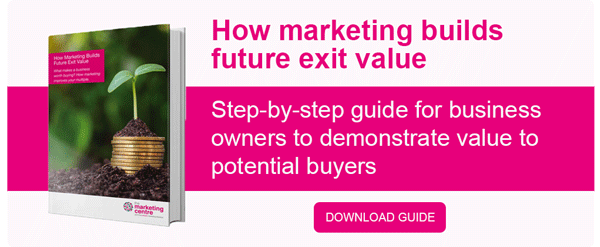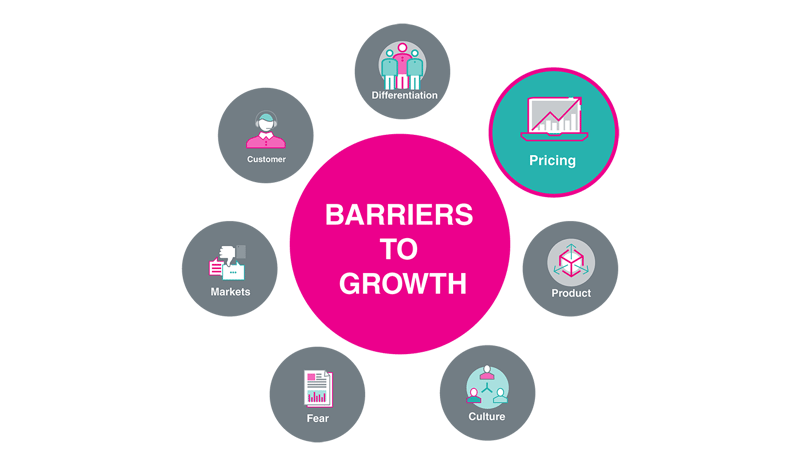A lot of people think that marketing is solely concerned with long-term growth. If you need short-term financial fixes, they say, you need to turn to sales.
Marketing is not only a long-term growth strategy. And sales is not only a short-term financial fix.
It is true that marketers do look at the bigger picture, but they can definitely also help businesses see an immediate positive change. A digital campaign, an emailer, a well thought out promotion - these are designed to have an impact on your sales pipeline in a matter of days or weeks.
Short-term campaigns still require a broader marketing strategy. The sales approach may be to hammer away at a cold calling list to get some leads and fill the pipeline, but we think that there are a few better ways to go about it.
Here are 5 steps to grow your sales pipeline by 5x in 3 months:
Step 1. Look at your existing customers
Your biggest source of future business is the customers you already have.
A big part of any marketing strategy is customer retention, especially if it's possible to use it to drive sales growth. Theres a much better chance of selling to an existing customer than to a new one (60-70% odds, compared to 20%) - and recommendations come from happy existing customers. Keep your customers and try to increase their average value to your business by keeping them in touch with the human, personal side of your business. Keep communication channels open and communicate regularly - making them offers based on their purchase history with you - and keep an eye on which emails they're opening/calls they're taking. It's all about building and improving relationships.
Step 2. Look at the story your data is telling you
Dun and Bradstreet claim that the best B2B salespeople spend two hours researching each prospect - and 85% of those salespeople say having the right data helps them save time and sell more efficiently.
- You may like: Marketing theory for B2B businesses - Data
What data does your business already have? Use what ever you have on hand to educate your salespeople about their customers. Look for trends - if they have anything in common? Do they have similar or varied problems that your business can solve? What is the best way to speak to them? When is the best time to reach them, and what's the right way to speak to them? Look at what's worked well in the past, and do it again, and again. Ask unashamedly for data from your sales team, you will find out who's doing well, what they're doing, and you can figure out how to get the rest of the team doing the same thing!
Step 3. Add value with a promotion that drives sales
Sales pipelines can get a nice big boost with a well thought out promotion. It doesn't have to be an enormous, bank breaking, multi-channel campaign; but it does have to be quick and easy to implement, unique, shareable and it must definitely stand out from the crowd.
Short term value is what you're after, without straining operations with too much of a cost. Ask yourself "what do your customers prize?" Would they benefit from guaranteed next day delivery, or free shipping? Would it work to offer a free consultation as a gateway offer, as a thought provoking exercise to think about their business needs and brainstorm solutions? Sometimes simple discounts work well for service based businesses - content management system (CMS) provider Wordpress runs a “twelve months for the price of ten” offer on website hosting services, could this perhaps be one of the reasons that 60% of the world’s websites use it...
Step 4. Re-engaging a stagnant pipeline
Look at dormant leads that have gone cold. We often get asked “how can I generate more leads?” by the business leaders we work with - our response is almost always “what are you doing with your current ones?”
If you aren't getting sales but you've got leads there's something wrong with your conversion process - work through the steps. How do your targets move to prospects, then to opportunities and to sales? Where and how are people finding you, what questions do they ask and what do you answer them? You should find the point where your communication is failing you and where leads are falling through the cracks. Every step needs to be owned by a specific person, with a target, and every single lead needs to be followed up.
With this in mind, go back over your process, go back to older leads and try to figure out what went wrong. Find a way to reach out to them again because you're already on their radar - which is half the battle won.
Step 5. Bring in some backup
Asking for help is a strength, not a weakness. You may need to look for some short-term external resources - outsourcing brings fresh, new approaches and new skills that could revitalise your sales pipeline and energise your sales team.
Sales promotion agencies are a good idea for short-term boosts, for example lead generation or telesales. Agencies could be brought in for a quick turnaround campaign to increase marketing activity. You could look for new routes to market, trial a new distributor to get your products or services out in the market.
You may look to an experienced, director-level hire, or advisor to help you - they will come with years of experience of what has worked for other businesses, and they may just give you the objective view needed to get clarity.
Short term sales activations have their place, and there is nothing wrong with them at all, as long as they're not the only thing your marketing team is doing. Often the lure of short term results means that priority is given to short term goals over a long term strategy. But it's the combination of quick wins, sales activations and long term brand building that ensures accelerated growth over time. Ignore one and it will impact your business.
Whether it’s short term or long, marketing is all about results - and the baseline for results is always Return On Marketing Investment. Find out how to track your spending and boost your results in our ROMI webinar.
Picture credit
Featured image (CC) Bilfinger SE, via Flickr.




